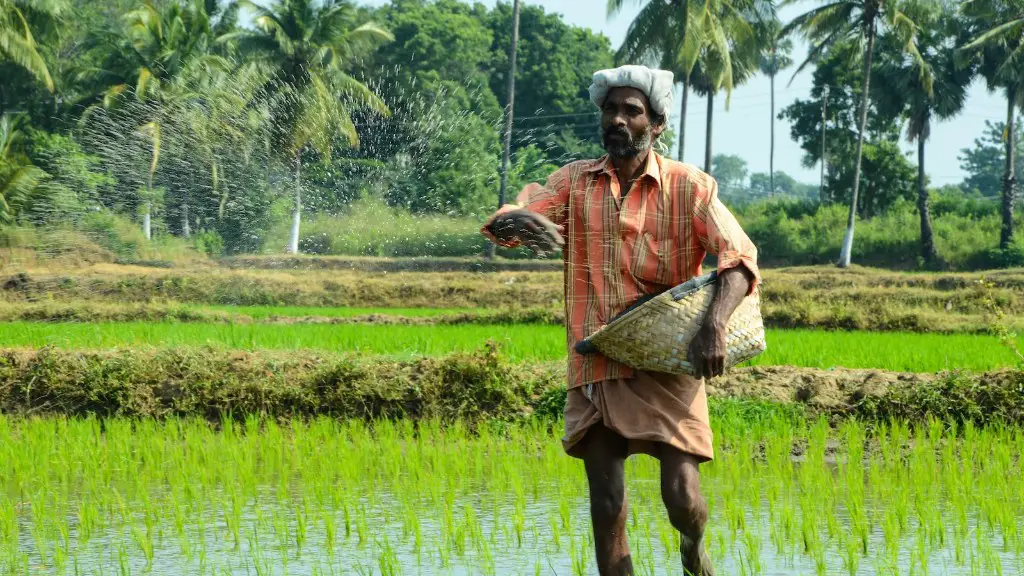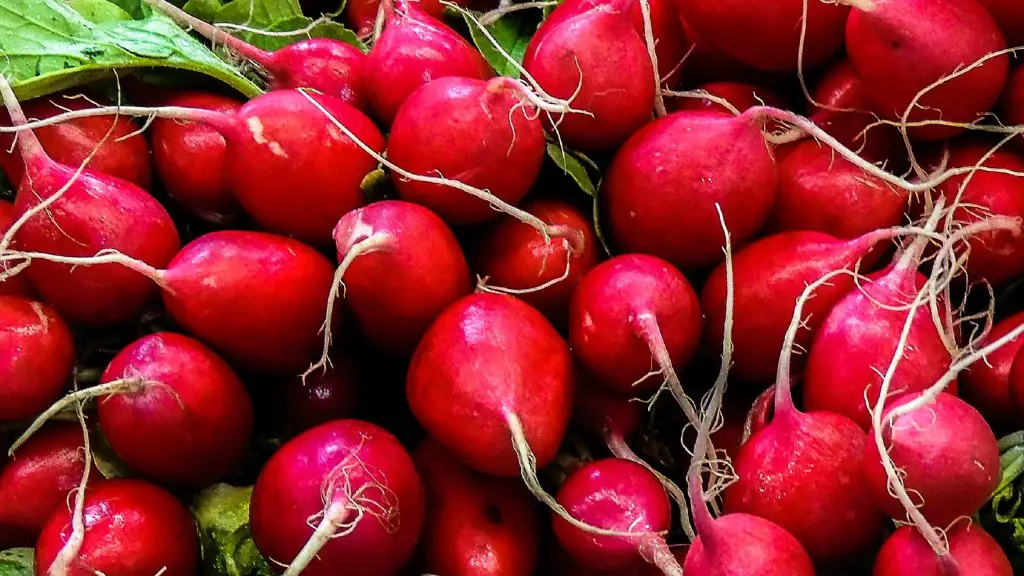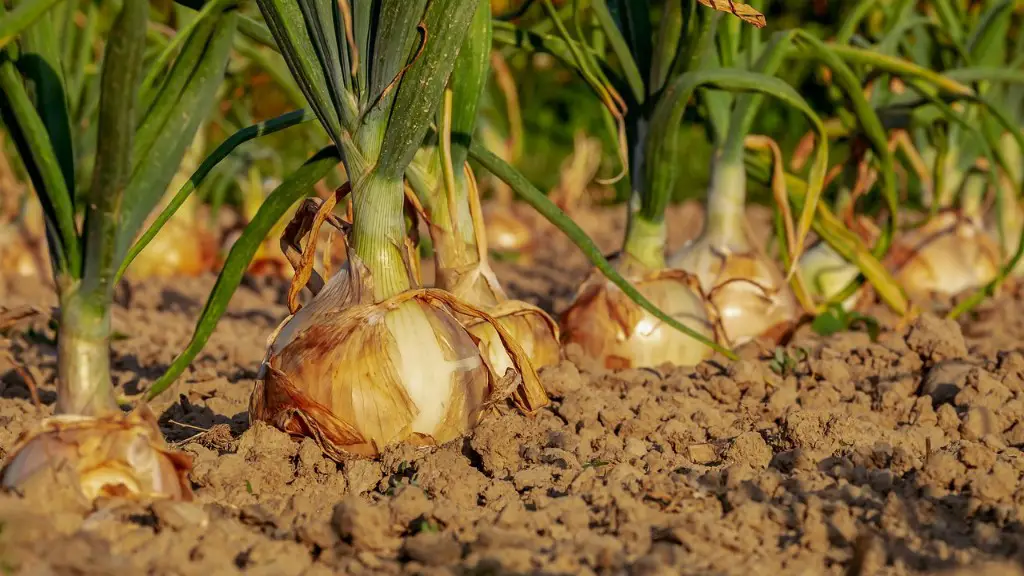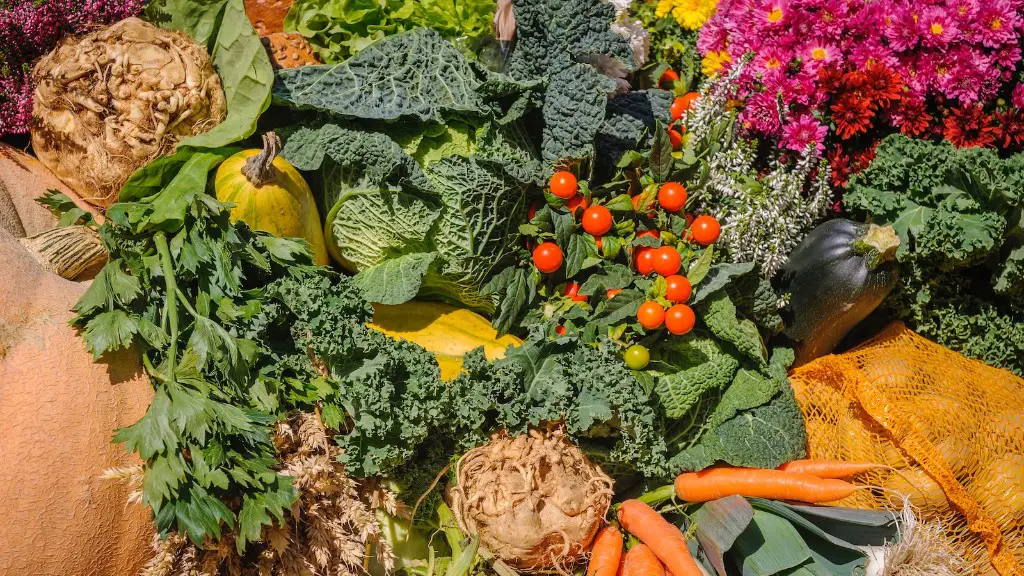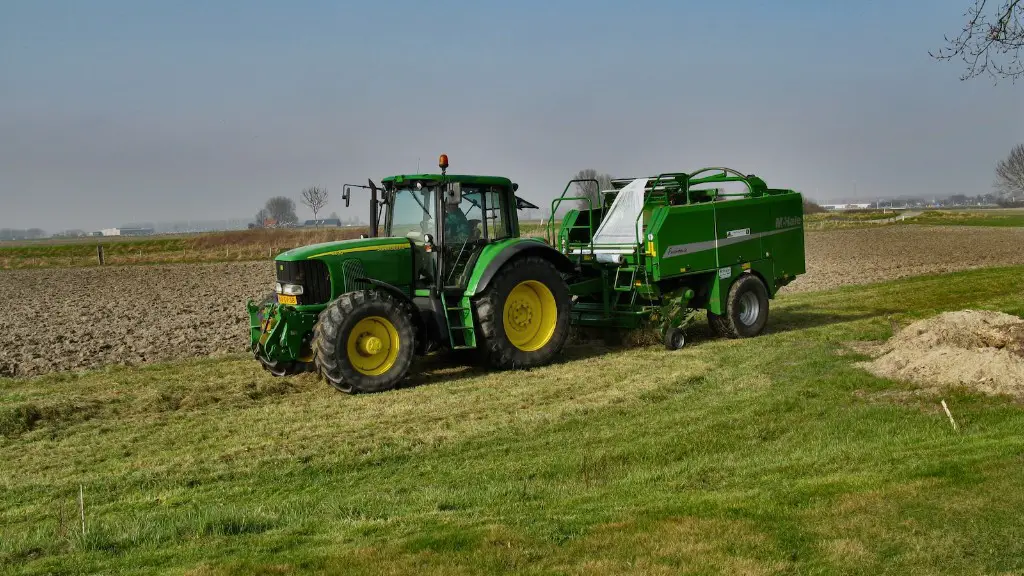Agriculture is an ancient practice of man that has been used for centuries to provide us with food and materials. What most people don’t realize is that there are many powerful forces that affect how, when and where people farm. By taking a look at some of the key factors that influence agricultural production, we can gain a better insight into how food is produced, transported and consumed on a global scale.
The first major factor affecting agriculture is climate and weather. Climate refers to the long-term patterns of weather in an area which determine how much rain, sun and wind farmers receive. Weather, on the other hand, is the daily and short-term changes in those conditions that can wreak havoc on crops. If the weather is too hot or too wet or the climate is generally dry, agricultural production can suffer.
Soil quality is another factor in agricultural production. Quality soil is essential for healthy crops and plants, so it is important to have properly nourished, nutrient-rich soil in order to cultivate plants. Improperly cultivated soil can cause a variety of problems, including pests, disease and erosion. Unhealthy soil can also be a factor in soil fertility and water retention, both of which are essential for a successful farming venture.
Access to water is a key factor in agriculture and can be the difference between success and failure. Water is essential to crops and plants because it helps them to grow and produces healthy crops. Without ready access to water, a farmer will struggle to get the water needed for production. Poor irrigation systems or a lack of rain can affect how much water is available to crops, leading to reduced yields.
The availability of technology is also a factor in agricultural production. Technology can be used to increase efficiency and yields, helping to reduce costs and increase profits. Modern farming equipment and technology such as crop protection, precision farming, and automated systems can all help to increase yields and reduce costs.
Human labor is a significant factor in agricultural production. People are needed to till the fields, harvest the crops, manage finances and distribute products. The availability of labor and the cost of labor ultimately affects how much farmers can produce and how much they can sell their products for.
Finally, the cost of inputs is another key factor that affects agricultural production. Inputs refer to the resources and materials needed to grow and cultivate crops, such as fertilizer, pesticides and machinery. If the cost of these inputs is too high, it can become difficult for farmers to produce enough food at a price that consumers are willing to pay.
Market Access
Market access is also a major factor in agriculture. Farmers must be able to transport their crops to markets to sell them, and access to these markets is essential for success. Without easy access to a viable market, farmers cannot sell their goods and make a living. Access to foreign markets can be particularly important for farmers in developing countries, as it allows them to take advantage of increased demand.
However, market access can be a challenge, especially for smaller farmers. Many countries impose tariffs and quotas on imports, making it difficult for foreign commodities to compete with domestic produce. Additionally, large corporations often purchase up large portions of imported commodities, driving up the price and leaving smaller farmers with less money.
Although market access is a challenge, there are ways to address this issue. Allowing farmers to access more markets can give them more bargaining power and allow them to receive better prices for their goods. Governments and organizations can also help to foster free trade across borders and regions, making it easier for small farmers to access lucrative foreign markets.
Adequate market access is essential for farmers to make a living, and it can make or break a farming business. Governments must assess their international trade policies carefully to ensure that small farmers are able to access markets without hindrance. This can help them to increase yields, reduce costs and make a living.
Farming Practices
Farming practices are also a major factor in agricultural production. Farmers must use sustainable, eco-friendly practices that protect the environment and the health of their crops. The use of fertilizers, pesticides and other chemicals is frowned upon as they can damage the soil and contaminate the crop. These chemicals can also find their way into the water supply, causing potential harm to human health.
Organic farming is becoming increasingly popular as people become more aware of the harm that chemical farming can cause. Organic methods use natural inputs such as compost and animal manure, providing the soil with the nutrients needed to feed crops without the use of chemicals. These methods are not only more sustainable, but also often cheaper and more effective than traditional chemical-based approaches.
Other sustainable practices include crop rotation, which prevents soil depletion, and mulching, which helps to conserve water and enhance soil fertility. Sustainable farming practices can help farmers to increase yields, reduce costs and protect the environment at the same time.
Although sustainable farming practices are beneficial, some traditional farmers may be resistant. These farmers may be unfamiliar with the methods or may have difficulty accessing the resources needed to implement them. It is important that governments, organizations and corporations provide support and resources to enable farmers to transition to more sustainable practices.
By transitioning to sustainable methods, farmers can increase their yields and reduce their costs, enabling them to make a living. Sustainable farming practices are essential to prevent damage to the environment and ensure that crops remain healthy and nutritious for us to consume.
Education
Education is also essential for successful agricultural production. Many smallholder farmers lack knowledge and experience, which can be beneficial when cultivating crops and managing operations. Knowing the best techniques for planting, irrigation and harvesting can make a big difference in yields and overall efficiency.
To increase their knowledge, farmers must have access to educational opportunities and resources such as books, seminars, and online courses. Organizations and governments can help by providing access to these resources and by encouraging farmers to seek out the education they need to maximize their productivity.
Additionally, practical skills such as carpentry, mechanics and welding can be useful on the farm. Knowledge of these skills can be important when maintaining tools and machinery, which are essential to any agricultural production.
Education is essential in providing smallholder farmers with the knowledge they need to achieve success. With the right education and training, farmers can increase their yields, reduce their costs and make a living.
Access to Credit
Access to credit is another factor that affects agricultural production. Smallholder farmers often lack access to the capital they need to invest in their business, such as the purchase of seeds, fertilizer, and machinery. This can limit their ability to expand operations and increase yields.
Fortunately, there are numerous ways to help farmers access credit. Financial institutions and organizations can provide loans or other forms of financing to assist smallholder farmers. Additionally, governments can encourage banks to offer loans to smallholder farmers by providing incentives or guarantees.
Organizations, governments and corporations can also help by providing access to microfinance programs. These programs provide small loans to help farmers invest in their business, enabling them to increase yields, reduce costs and make a living.
Although access to credit can be a challenge, there are various solutions that can help smallholder farmers access the capital they need to invest in their business. With access to the right resources and support, farmers can increase their yields and make a living.
Risk Management
Finally, risk management is a key factor in agricultural production. Farming is subject to numerous risks, both man-made and natural, that can cause crop failure or other losses. Farmers must be able to identify and manage these risks in order to ensure a successful venture.
Risks can include floods, disease, pests, fire, and other disasters. Farmers must use the latest information to anticipate and plan for potential risks, and contingency plans must be in place in case a disaster does occur. Additionally, access to insurance and other forms of protection can lessen the blow if a disaster does occur.
Organizations and governments can help by offering advice and resources on risk management, as well as access to insurance policies. This can help farmers identify their risks, plan for them and protect their crops and investments.
By taking the necessary precautions and acting accordingly, farmers can protect their crops and their bottom line. Risk management is an essential part of any successful farming venture and should not be overlooked.
